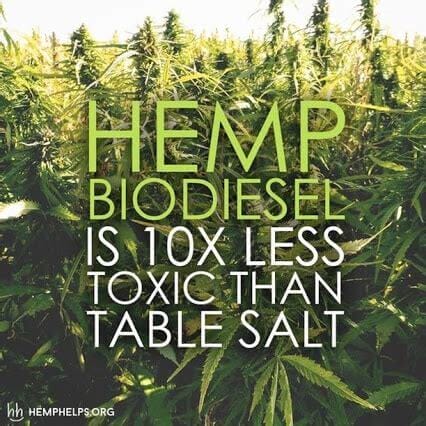There is excitement in the air, can you feel it? If you can, I would beg the question as to why the excitement?
For many of us following the regulations and the reclassification of hemp and marijuana from Schedule I to Schedule III brings much anticipation for the future. For those in the Industrial Hemp Industry, ummm, perhaps not so much, and you may wonder why. While there could be many great arguments from both, the hemp and marijuana sectors, this article will be focusing on hemp. More specifically, Industrial Hemp, and why it should not be under any restrictions or guidelines imposed by the non-elected government alphabet soup. Meaning the FDA and the USDA. While we’re at it, let’s throw in the EPA too! These are the same agencies that approve toxic chemicals to be added to your food and drinks. The same food and drinks that are banned in other countries BECAUSE of those same toxic additives. One of them “requires” farmers to spray their crops with poisons for pest control. So poisonous, in fact, hazmat suits need to be worn when spraying. But it’s all, you know, for your own health and well-being, right? So, you must ask yourself, if they allow those, why would they want such restrictive guidelines on a crop that has proven so beneficial throughout history?

Well, if you were to ask them, they would say something like, “According to “experts” more studies need to be conducted”, or “..studies, so far, are inconclusive”. Really? Advice from paid “experts” enforced by non-elected agencies bought and paid for by none other than the Big Banks, Big Pharma, Big Corporations…you get the picture. Please! Your closest neighbor with a garden most likely has much more knowledge than the said “experts” used to push and promote exactly what they are told by those who fill their pockets.
Okay, so let’s get back to why this is such a problem for the Industrial Hemp growers.
First, let’s go over a few items produced by Industrial Hemp and WHY this industry is so beneficial to just about every aspect of this country from the environment to health, to economics, much of which we’ve gone over in previous articles.
Environment & Health

1. Biofuel
The constant burning of things such as coal causes the release of greenhouse gases which are extremely harmful to the environment. This is a well-known fact that has been talked about for years and continually tossed aside. One solution to this would be biofuel.
Currently, even though the idea isn’t something new, hemp is not being used for this purpose regardless of how effective it would be. Hemp produces an oil which ethanol can be extracted from.
Ethanol produced from hemp does not release carbon dioxide into the air like other crops do, which makes it a very promising alternative to the fuels we are using today.
2. Carbon Bio-sequestration
I’m guessing this is probably a term most aren’t familiar with. Carbon sequestration is the process through which carbon dioxide is captured from the atmosphere and stored to prevent it from being emitted back into the air.
It’s a great method of reducing the amount of carbon dioxide that is in the air. Any who remember the photosynthesis process knows this is not only wonderful for the crop as plants need carbon dioxide to thrive, in turn, the plant releases oxygen that we, as humans need to survive. A win-win scenario if you will. Since biomass plants draw carbon from the atmosphere, they then can be slowly smoldered to create something known as biochar. Biochar is a form of charcoal which can then be mixed back into the soil. Hemp just so happens to be one of the highest-yielding biomass crops on the planet and because it’s so easy to grow, it would allow us to begin a cycle of removing the carbon dioxide content in the air and resupplying it back into the land.
Economy
During colonial times, hemp was a dominant crop that was used as a renewable resource that could be refined into textiles, paper, rope, and more. However, the industry was decimated with the passage of the Marihuana Tax Act of 1937. With the government’s push to heighten public fears, all forms of cannabis sativa plants, including Industrial Hemp, were taxed and later outlawed under the Controlled Substances Act of 1970. Note the word “taxed”. In other words, a way for the government to take over yet another industry to enrich itself. With a greater understanding as to hemp’s economic power and knowledge of the differences from marijuana, the federal government legalized industrial hemp in the 2018 Farm Bill. With this new federal legalization, states quickly hopped on board and began implementing programs for hemp cultivation and processing.
So, how does this benefit the economy?
1. Job Creation
Industrial hemp is a sustainable crop and could give small farmers another opportunity for success. Due to the plant’s versatility, the job demand is expected to increase exponentially. As it grows, the Industrial Hemp industry would have an increasing demand for accountants, lawyers, transporters, insurance experts, and more to help it thrive.
2. Cost of Hemp Cultivation

- Sustainable and low-cost fuel.
- Less water consumption. For example, it would take 5,000 gallons to produce 2.2 pounds of cotton, and only 700 gallons to produce the same number of pounds of hemp.
- Hemp paper is more durable and longer lasting than common computer paper.
- Less expensive alternative to wood for construction. For example, Hempcrete.
As stated in previous articles, hemp is able to grow in just about every climate, so it is not limited to a specific region. Because the crop is typically planted densely, it allows farmers to harvest more hemp (approximately 20 plants per square foot) per acre. Basically, generating more product with less space. That, along with flexible growing conditions, creates every economic benefit from cost-effectiveness, job creation, environmental conservation, and more.
By now, you may be wondering with all of the great opportunities mentioned why being reclassified to Schedule III isn’t a cause to celebrate.
Well, there is still a roadblock, you see. Because our alphabet soup insists on having power over every aspect of everything, the Industrial Hemp Industry is still subjected to some of the same criteria as marijuana. They have to test THC levels and have to adhere to the same levels as the marijuana industry and have been forced to destroy entire crops if they don’t fall into the correct guidelines. That can be detrimental and extremely costly to farmers. I don’t know about you, but I can’t remember the last time I had a burning desire to lick rope or paper made of hemp to gain access to THC. Not to mention how minute any trace of it would be left after going through whichever process was needed for particular products. And so placing these restrictions on the Industrial farmers makes absolutely no sense…to us. To those receiving kickbacks though…

We have to keep in mind the impact such a cash crop could have on “The Bigs” we always refer to. It is a crop that could eliminate the monopoly they have over our society. In essence, it is the one commodity that could wrest power away from those that have thrived by maintaining control of everything and help give power back to “We the People”.

